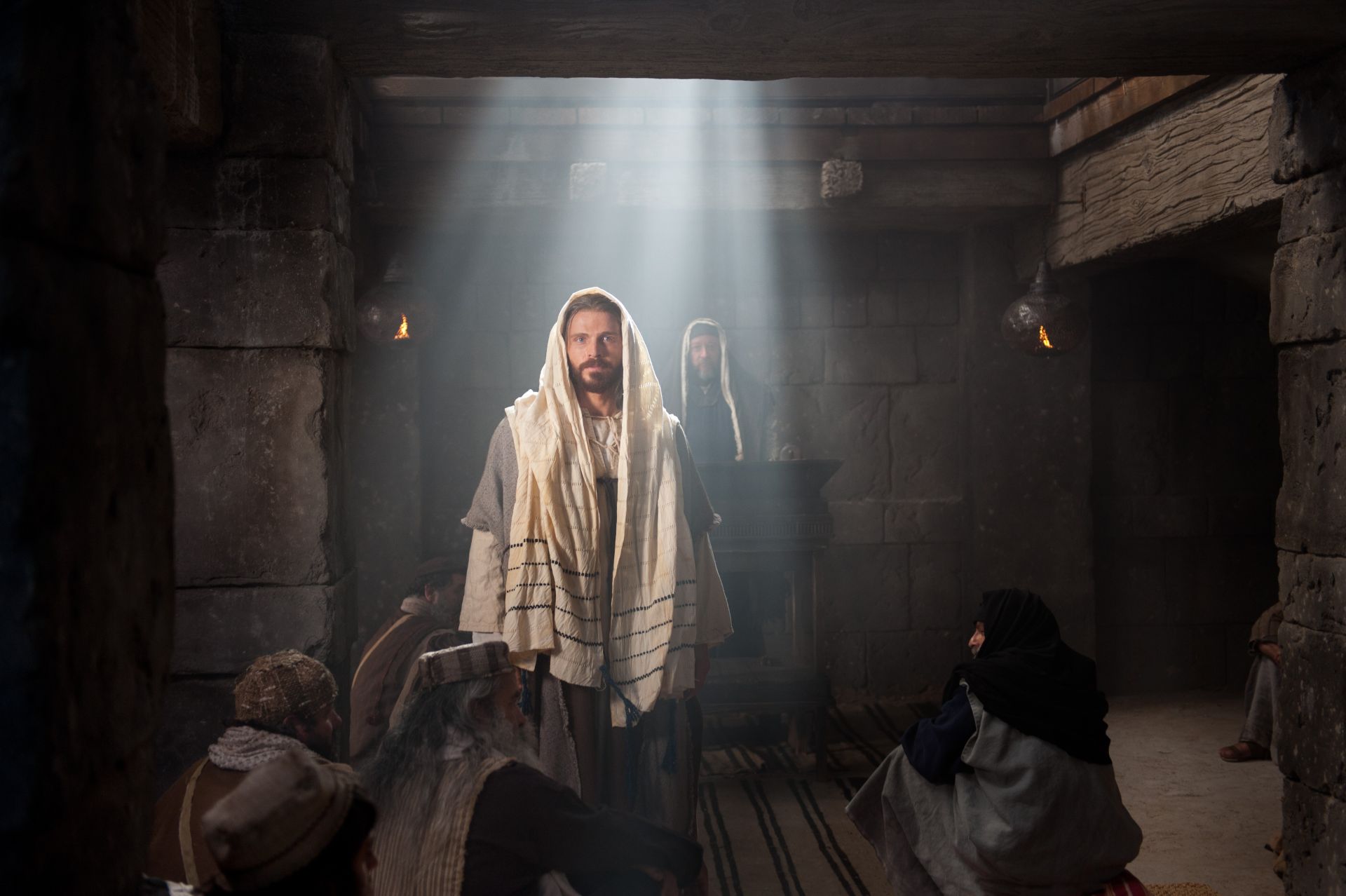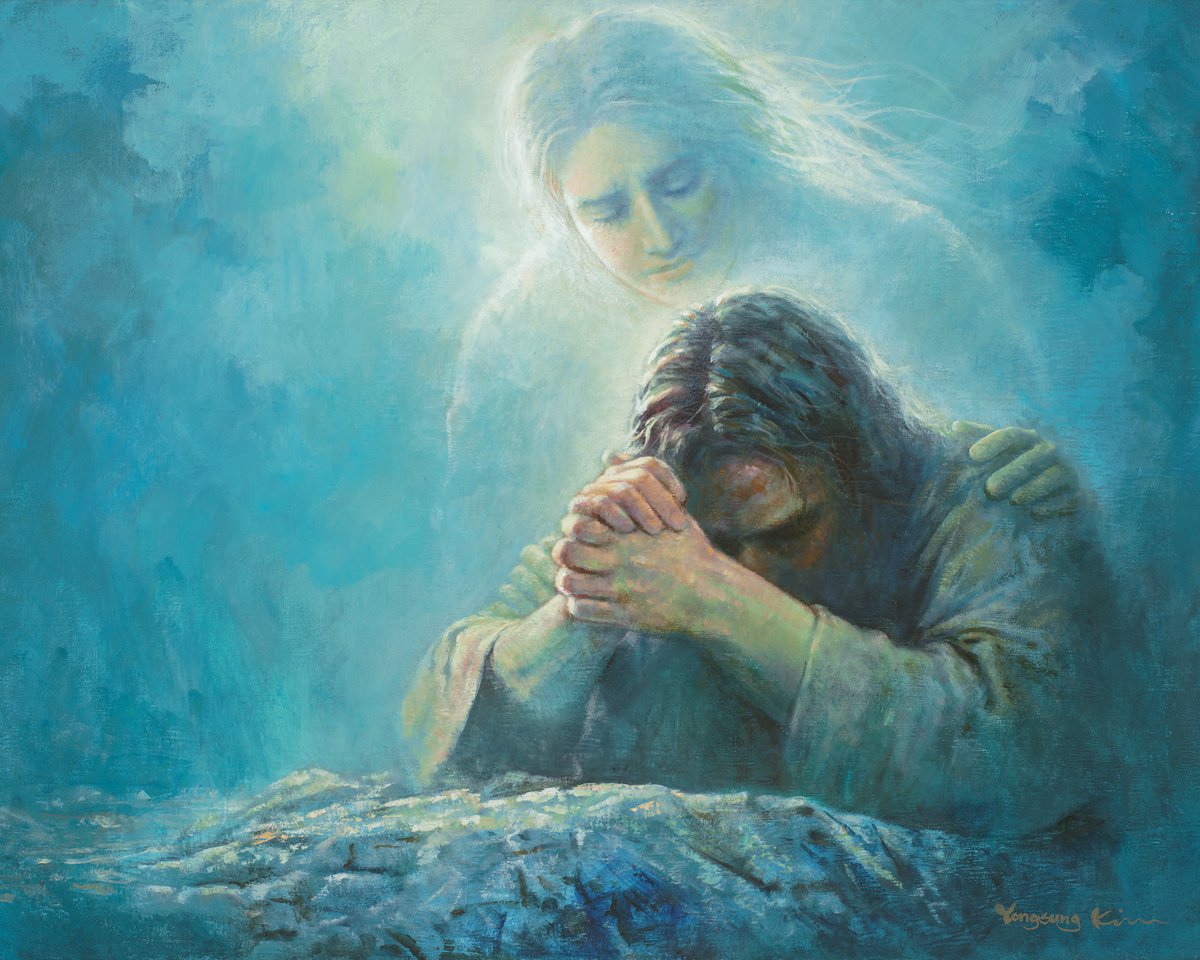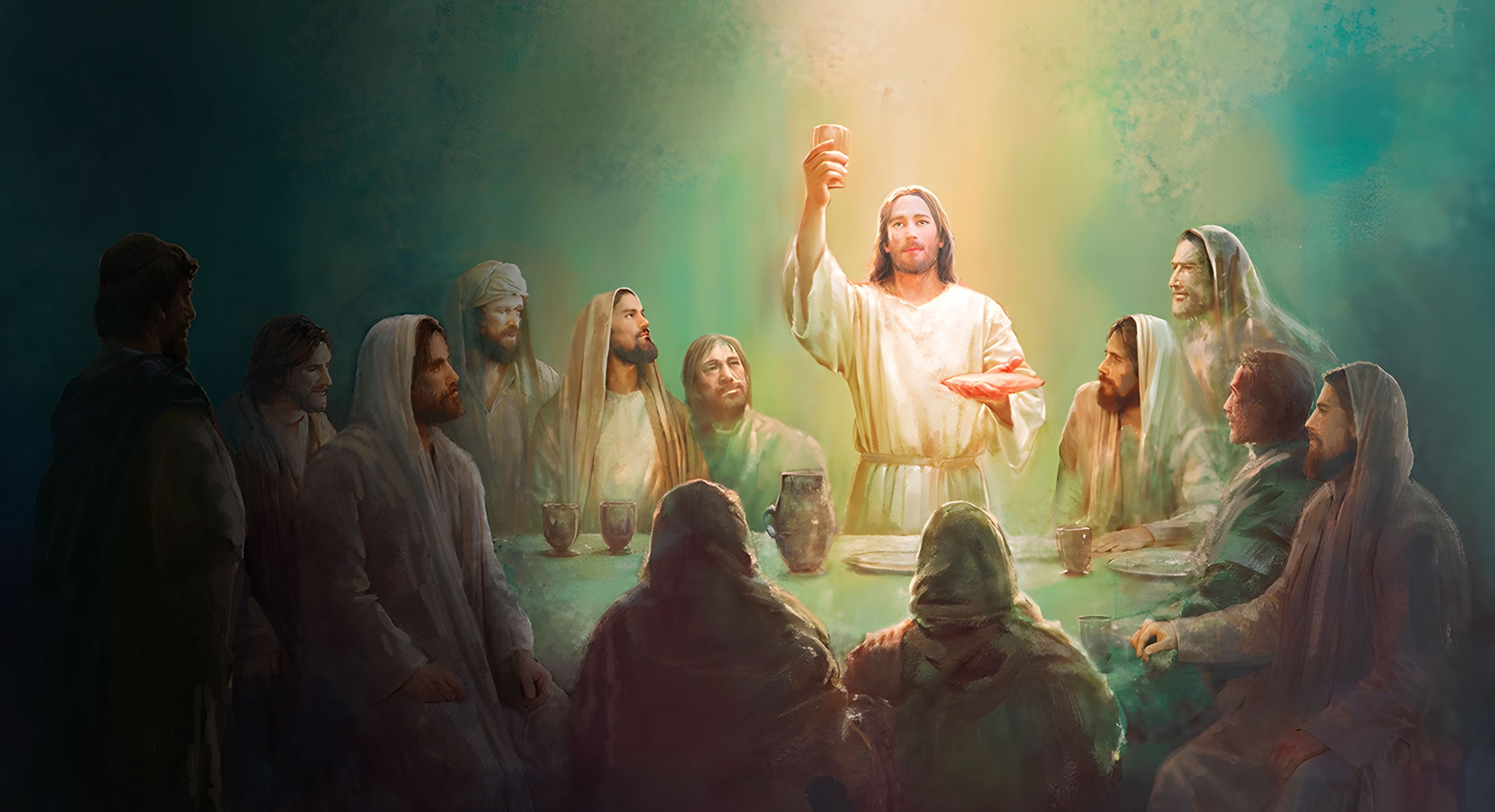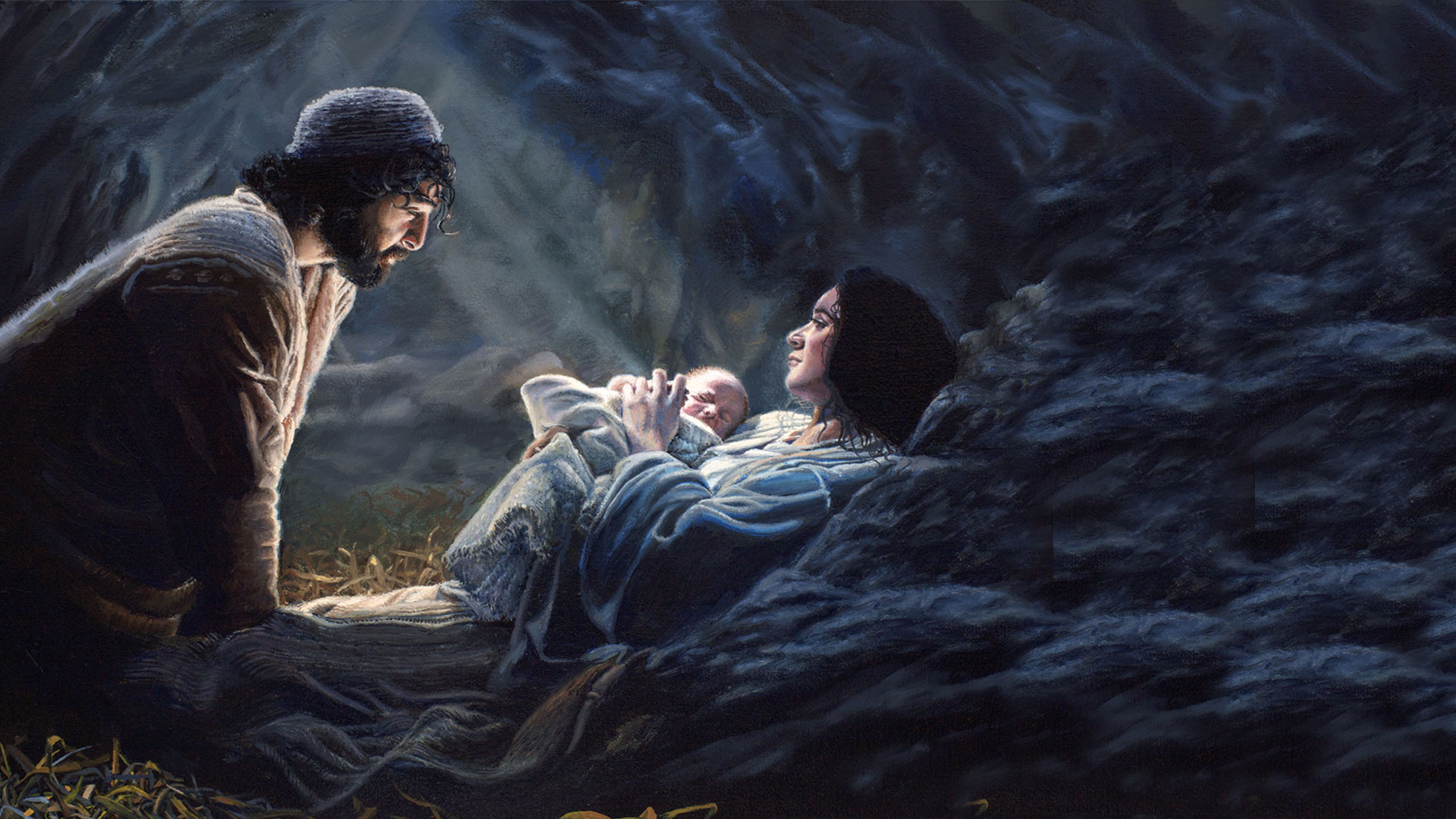
The quest to find peace in one’s life, meaning in suffering, and how to overcome trials is the journey of a lifetime for humankind. Buddhists seek answers to these questions in the teachings of the Buddha, and Christians in the teachings and atonement of their Savior, Jesus Christ. Both seek to improve the self and overcome the evils of the world.
Buddhism teaches that through cycles of rebirth and death, one learns to overcome suffering caused by desire and ignorance of reality’s true nature. They believe that they work their way up through Karma until they reach Nirvana—which ends this cycle of reincarnation—when suffering and desire disappear, leading to peace. Buddhists believe this cycle of death and rebirth occurs without external intervention by humans or gods. They also do not believe in self-permanence nor in the existence of a permanent, unchanging soul. When they reach Nirvana, they join the universe. Buddhists believe the Buddha, who lived 2,500 years ago, attained “awakening” through efforts including fasting and meditation, gaining insight into karma and his former lives. The fully enlightened Buddha, in turn, founded a monastic order and taught others of the dharma, or key teachings, that he discovered.
Christians seek to overcome trials and suffering through the atoning sacrifice of Jesus Christ. They believe that if they live righteously and follow the example of Jesus, they can one day return to live with God and find true peace and lasting happiness.
Although the central figures of each religion differ in many respects, they both seek to teach others how to find happiness and peace both in this life and in the life to come. To understand the teachings of Christianity, however, one must understand Jesus Christ.
The Purpose of Life on Earth

Christianity answers the questions of where we came from, why we’re here and where we’re going after we die differently than Buddhism. But the answers to these questions explain who Jesus Christ is, and why He is important to us. Christians believe that God is the Father of our spirits, and we lived with Him before we came to earth. (See Ecclesiastes 12:7, Jeremiah 1:5 and Hebrews 12:9.) God created the earth and sent us here to be tested, to see if we would obey His commandments in all things and qualify ourselves to return to His presence. (See Revelation 3:21.) The ultimate goal of Christianity is eternal life and exaltation, which is to return to live in the presence of God forever (Romans 8:17).
However, our loving Heavenly Father knew that we would all fall short of perfection in this wicked world, thus disqualifying ourselves from returning to Him. So our Heavenly Father provided a way for us to overcome sin, temptation and suffering: Jesus Christ, our Savior and Redeemer (1 Peter 1:20). Jesus Christ would set the example of obedience to God in all things and perform an atoning sacrifice, which would open the gate for us to repent of our sins upon conditions set by God. (See Matthew 3:15.)
Christians believe that our sojourn here in mortality is part of God’s master plan to refine and perfect us and that, as His spirit sons and daughter, we will retain our individuality in the hereafter.
Who is Jesus?
Jesus Christ was the Only Begotten of the Father in the flesh and set the example for us to follow. Christ Himself taught,
I am the way, the truth, and the life: no man cometh unto the Father, but by me (John 14:6).
His mission was foreordained from the beginning (1 Peter 1:20). His mother, Mary, was a virgin when she conceived Him (Luke 1:31). He inherited the traits of divinity from His Heavenly Father and the traits of mortality from His mother, Mary (Isaiah 7:14; Galatians 4:4; and Matthew 1:23). He lived a perfect, sinless life and was obedient to the Father in all things. Even though He was sinless, He was baptized to fulfill the law and set the example for us to follow (Matthew 3:13, 15).
During His time on the earth, He performed miracles (Matthew 9:6). One purpose for His miracles was to show that He did have power and authority from God (Matthew 9:6). He also had compassion on those who were suffering. Jesus loved the little children, and took time to bless them (Matthew 19:13-14). Jesus also organized His Church (Matthew 16:18), calling and ordaining His Apostles (Luke 6:12-16) to continue preaching the gospel after His time on the earth was finished.
The Teachings of Christ

Christians seek enlightenment in Jesus Christ and His teachings of the higher laws—mercy, love, compassion and forgiveness. He taught that we must forgive all who trespass against us, as many times as they do so. He taught that we should be peacemakers, turning the other cheek if someone strikes us first. Jesus showed mercy to the woman who was taken in adultery and compassion on those who were sick and suffering. He taught that He is the Bread of Life and the Living Water, and that whosoever will follow Him will never thirst again.
Jesus described certain refining character traits in what is called “The Beatitudes.” (See Luke 6:20-22). He taught,
Blessed are the poor in spirit: for theirs is the kingdom of heaven.
Blessed are they that mourn: for they shall be comforted.
Blessed are the meek: for they shall inherit the earth.
Blessed are they which do hunger and thirst after righteousness: for they shall be filled.
Blessed are the merciful: for they shall obtain mercy.
Blessed are the pure in heart: for they shall see God.
Blessed are the peacemakers: for they shall be called the children of God. … (Matthew 5:3-11).
Christians believe that following the example and teachings of Jesus Christ will lead us on the path to eternal life and happiness. Buddhists believe that living by the doctrine of karma will lead to happiness. According to the doctrine of karma, good conduct brings a pleasant and happy result while bad conduct brings a bad or evil result. Good acts create a tendency toward similar good acts, and bad acts create a tendency toward similar bad acts. Both the doctrines of karma and the doctrines of Christ create a framework for living a moral life.
Christ’s Atoning Sacrifice

As the only Begotten Son of the Father in the flesh and with an eye single to the glory of God, Jesus Christ was uniquely qualified to perform an atoning sacrifice (Matthew 20:28 & 28:18, and John 3:17). Jesus, with God as His Father and Mary as His mother, was the Son of God and the Son of Man. (See Luke 1:35.) As such, He was the only person who could atone for the sins of all mankind as well as lay down His life voluntarily and take it up again. (See Romans 8:32.)
Jesus Christ’s atoning sacrifice began in the Garden of Gethsemane, where He took upon Himself all of the pains, sicknesses, infirmities, iniquities, sorrows, sins and evils of each person who has ever lived or will ever live on the earth. (See Isaiah 41:14 and 53:4; John 1:29 and Hebrews 9:28.) His agony was so intense that “His sweat was as it were great drops of blood falling down to the ground” (Luke 22:44).
Jesus’s sacrifice continued throughout the night as He was mocked, scourged and condemned to death. (See Mark 15.) Jesus’s hands and feet were nailed to the cross, and His cross was lifted up and placed between two thieves (Mark 15:27-28). The agony was so great that Jesus Himself cried out, “My God, my God, why hast thou forsaken me (Mark 15:34)?” When His mission was complete, Jesus gave up the ghost (Mark 15:37).
Jesus’s death was not the end but a new beginning, as three days later He was resurrected. In doing so, Jesus “swallowed up death in victory” (Isaiah 25:8) and took away the sting of death (1 Corinthians 15:54-55).
Finding Peace in Christ

Christians believe that Christ’s suffering and death does not mean that we will not suffer nor face death. Rather, it means that in our suffering and our trials, we can turn to Him for comfort. Jesus Christ has felt our pains, sorrows, sicknesses and sins. As the ancient prophet Isaiah taught,
He was wounded for our transgressions, he was bruised for our iniquities: the chastisement of our peace was upon him; and with his stripes we are healed (Isaiah 53:5).
We will all die, but we, too, will be resurrected as Jesus was. Our bodies will be reunited with our spirits, and we, too, will live again. As the Apostle Paul taught,
And we have hope toward God, which they themselves allow, that there shall be a resurrection of the dead, both of the just and unjust (Acts 24:15).
The end goal for both Buddhists and Christians is to find peace and happiness both now and in the life to come by improving the self. Christians look to Jesus Christ to show them the way.




